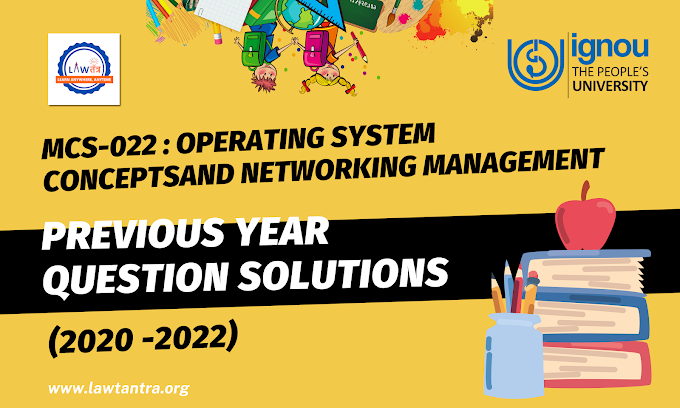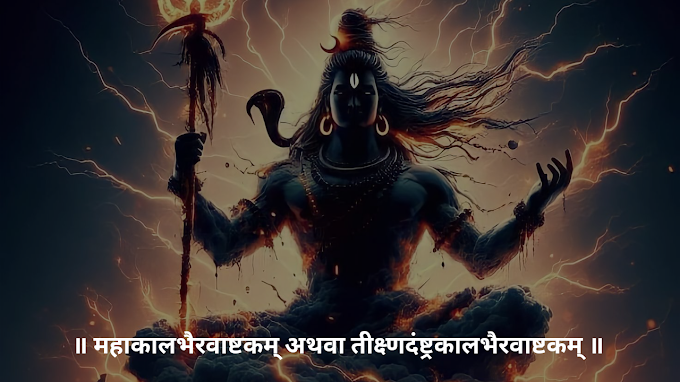Answer : Offences & Penalties under the Information Technology Act, 2000
The introduction of the internet has brought the tremendous changes in our lives. People of all fields are increasingly using the computers to create, transmit and store information in the electronic form instead of the traditional papers, documents. Information stored in electronic forms has many advantages, it is cheaper, easier to store, easier to retrieve and for speedier to connection. Though it has many advantages, it has been misused by many people in order to gain themselves or for sake or otherwise to harm others. The high and speedier connectivity to the world from any place has developed many crimes and these increased offences led to the need of law for protection. Some countries have been rather been vigilant and formed some laws governing the net. In order to keep in pace with the changing generation, the Indian Parliament passed the law --- Information Technology Act 2000. The IT Act 2000 has been conceptualized on the United Nations Commissions on International Trade Law (UNCITRAL) Model Law.
The increase rate of technology in computers has led to enactment of Information Technology Act 2000. The converting of the paper work into electronic records, the storage of the electronic data, has led tremendous changed the scenario of the country. The Act further amends the Indian Penal Code, 1860, The Evidence Act, 1872, The Banker’s Book’s Evidence Act, 1891 and The Reserve Bank of India Act, 1934.
Offences:
Cyber offences are the unlawful acts which are carried in a very sophisticated manner in which either the computer is the tool or target or both. Cyber crime usually includes:
(a) Unauthorized access of the computers
(b) Data diddling
(c) Virus/worms attack
(d) Theft of computer system
(e) Hacking
(f) Denial of attacks
(g) Logic bombs
(h) Trojan attacks
(i) Internet time theft
(j) Web jacking
(k) Email bombing
(l) Salami attacks
(m) Physically damaging computer system.
The offences included in the IT Act 2000 are as follows:
1. Tampering with the computer source documents.
2. Hacking with computer system.
3. Publishing of information which is obscene in electronic form.
4. Power of Controller to give directions
5. Directions of Controller to a subscriber to extend facilities to decrypt information
6. Protected system
7. Penalty for misrepresentation
8. Penalty for breach of confidentiality and privacy
9. Penalty for publishing Digital Signature Certificate false in certain particulars
10. Publication for fraudulent purpose
11. Act to apply for offence or contravention committed outside India
12. Confiscation
13. Penalties or confiscation not to interfere with other punishments.
14. Power to investigate offences.
Offences Under The It Act 2000:
Section 65. Tampering with computer source documents:
Whoever knowingly or intentionally conceals, destroys or alters or intentionally or knowingly causes another to conceal, destroy or alter any computer source code used for a computer, computer Programme, computer system or computer network, when the computer source code is required to be kept or maintained by law for the being time in force, shall be punishable with imprisonment up to three year, or with fine which may extend up to two lakh rupees, or with both.
Explanation: For the purpose of this section “computer source code” means the listing of programmes, computer commands, design and layout and programme analysis of computer resource in any form.
Object: The object of the section is to protect the “intellectual property” invested in the computer. It is an attempt to protect the computer source documents (codes) beyond what is available under the Copyright Law
Essential ingredients of the section:
1. knowingly or intentionally concealing ,
2. knowingly or intentionally destroying,
3. knowingly or intentionally altering,
4. knowingly or intentionally causing others to conceal,
5. knowingly or intentionally causing another to destroy,
6. knowingly or intentionally causing another to alter.
This section extends towards the Copyright Act and helps the companies to protect their source code of their programmes.
Penalties: Section 65 is tried by any magistrate.
This is cognizable and non- bailable offence.
Penalties: Imprisonment up to 3 years and / or
Fine: Two lakh rupees.
Case Laws:
1. Frios v/s State of Kerela
Facts: In this case it was declared that the FRIENDS application software as protected system. The author of the application challenged the notification and the constitutional validity of software under Section 70. The court upheld the validity of both.
It included tampering with source code. Computer source code the electronic form, it can be printed on paper.
Held: The court held that Tampering with Source code are punishable with three years jail and or two lakh rupees fine of rupees two lakh rupees for altering, concealing and destroying the source code.
2. Syed Asifuddin case:
Facts: In this case the Tata Indicom employees were arrested for manipulation of the electronic 32- bit number (ESN) programmed into cell phones theft were exclusively franchised to Reliance Infocom.
Held: Court held that Tampering with source code invokes Section 65 of the Information Technology Act.
3. Parliament Attack Case:
Facts: In this case several terrorist attacked on 13 December, 2001Parliament House. In this the Digital evidence played an important role during their prosecution. The accused argued that computers and evidence can easily be tampered and hence should not be relied.
In Parliament case several smart device storage disks and devices, a Laptop were recovered from the truck intercepted at Srinagar pursuant to information given by two suspects. The laptop included the evidence of fake identity cards, video files containing clips of the political leaders with the background of Parliament in the background shot from T.V news channels. In this case design of Ministry of Home Affairs car sticker, there was game “wolf pack” with user name of ‘Ashiq’. There was the name in one of the fake identity cards used by the terrorist. No back up was taken therefore it was challenged in the Court.
Held: Challenges to the accuracy of computer evidence should be established by the challenger. Mere theoretical and generic doubts cannot be cast on the evidence.
Section66. Hacking with the computer system:
(1) Whoever with the intent to cause or knowing that he is likely to cause wrongful loss or damage to the public or any person destroys or deletes or alters any information residing in a computer resource or diminishes its value or utility or affects it injuriously by any means, commits hacking.
(2) Whoever commits hacking shall be punished with imprisonment up to three years, or with fine which may extend up to two lakh rupees, or with both.
Explanation: The section tells about the hacking activity.
Essential ingredients of the section:
1. Whoever with intention or knowledge.
2. Causing wrongful loss or damage to the public or any person.
3. Destroying or altering any information residing in a computer resource.
4. Or diminishes its value or utility or.
5. Affects it injuriously by any means.
Penalties: Punishment: Imprisoned up to three years and
Fine: which may extend up to two lakh rupees.Or with both.
Case Laws:
1. R v/s Gold & Schifreen
In this case it is observed that the accused gained access to the British telecom Prestl Gold computers networks file amount to dishonest trick and not criminal offence.
2. R v/s Whiteley.
In this case the accused gained unauthorized access to the Joint Academic Network (JANET) and deleted, added files and changed the passwords to deny access to the authorized users.
The perspective of the section is not merely protect the information but to protect the integrity and security of computer resources from attacks by unauthorized person seeking to enter such resource, whatever may be the intention or motive.
Cases Reported In India:
Official website of Maharastra government hacked.
The official website of the government of Maharashtra was hacked by Hackers Cool Al- Jazeera, and claimed them they were from Saudi Arabia.
Comparison Between Cyber Crimes And Cyber Contravention:
Cyber contravention is a civil wrong for which the defaulting party has to pay some amount as compensation. It may lead to civil prosecution. The defaulting party may be charged with up to 1crore. It is covered under section 43-45 of the Information Technology Act of 2000, which deals with illegal access to computer system or network. The investigation is done by the controller who is appointed by the Central Government under the provisions of the Act or an official authorized by him/her.
On the other hand, Cyber offences constitute cyber frauds and crimes which are criminal wrongs. The punishment of imprisonment and/or fine is prescribed by the Act. Cyber offences may lead to criminal prosecution. It is covered under Sections 65-74 of the Information Technology Act of 2000, which deals with serious cyber- crimes related to computer system and network. The offender can be punished with confinement, fine or both. Cyber offence investigation is done by the police officials not below the rank of a Deputy Superintendent of Police[
In simple terms, both are distinguished based on the type of wrongs that is civil or criminal wrong; the type of proceeding that is civil or criminal; who investigates the matter; nature and section covered under the act and lastly the punishment or the penalty for the offence committed.
Conclusion:
Cyber Crimes or offences is a new invention of crimes which is committed by intellectual and sophisticated criminals. These offences started to operate when computer technology went peak and took a new turn to satisfy human needs and desires. It is very much complicated for effective law enforcement as the criminals are well versed in using the technology. Sometimes, it provides benefits to the offenders. These crimes may happen or originate in any part of the world and may pass across different countries. Therefore, such situation may increase both technical and legal complexities of investigating and prosecuting it.
- Sol DU online exams from March 15, 4 Important questions
- farmer-protest-live-updates
- CAT2020: Read these important things before going to the exam hall
- Modi government gave big relief, Small Business
- New farm laws and conflict between Govt. & Farmers
- Struggle in Drafting Constitution
- Defamation and IT Act






0 Comments
Please do not enter any spam link in the comment box.